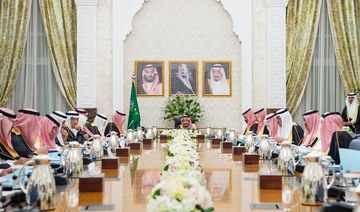KARACHI: A Pakistani official confirmed on Friday that a foreign drone was seized from the country’s Chaghi district bordering Iran and Afghanistan, fuelling speculation among analysts that it likely belongs to Tehran.
“A drone was found … in the Tuzgi Wadh area of the Chaghi district,” said the region’s deputy commissioner, Fateh Khan Khajjak.
A Balochistan government official said on Tuesday that the area where the drone was found was just a few miles away from the Reko Diq gold and copper mine.
He rejected reports that the drone had landed due to technical issues, adding that it had been handed over to the Frontier Corps.
“The drone grounded with the help of a parachute and was in a functional condition. Had the troops not switched it off on time, it would’ve flown away,” the official told Arab News on condition of anonymity. He further divulged that the area where the drone was found was a 30-minute drive from Helmand province, Afghanistan.
Chaghi is known for Chaghi-I, five simultaneous underground nuclear tests conducted by Pakistan on May 28, 1998.
Asked who the drone belonged to, the official said: “It’s hard to say as the drone has no monogram or country flag.” He added that an investigation had been launched to identify the country of origin.
Meanwhile, analysts claimed it was likely Iranian.
“It appears to be an Iranian Mohajer drone, although the tail slightly differs from images released by the press in Tehran,” said Erik Lin-Greenberg, a drone expert and assistant professor at the American University’s School of International Service in Washington, DC.
He said it was difficult to determine why the drone had landed in Pakistan, adding: “States typically want to keep their military technology from falling into the hands of rivals who could reverse engineer systems and glean valuable technical and operational information. The drone may have malfunctioned and made an unanticipated landing.”
Greenberg added that it was difficult to assess what Tehran’s intentions were in this case, or even if the drone was intended to be operated inside Pakistan. “The Iranian drone that Pakistan shot down in 2017 was reported to be monitoring the border region for illegal activity,” he said.
Khalid Muhammad, an Islamabad-based security analyst, said: “It’s the second intrusion of an Iranian drone into Pakistan’s airspace, and this has happened within a span of a week or 10 days.”
“Whether we wait for confirmation or not, this will emerge as an Iranian drone,” he added.
“This is the first time a drone has been recovered in functional condition. The last Iranian drone was shot down in Balochistan,” he said, adding: “We must believe that Iran is monitoring something within Pakistan. We haven’t had this frequency of drones coming across our border in the past, so we must believe that they’re conducting surveillance.”
This is not the first time Tehran has sent drones into Pakistan’s airspace in Balochistan, Greenberg said.
“In 2017, for instance, Pakistan reportedly shot down an Iranian drone in the region. That particular incident didn’t escalate to conflict, and this incident also seems unlikely to escalate. My research suggests that attacks on drones fall at a less escalatory threshold than attacks on inhabited assets, making it easier for countries — in this case, Iran — to avoid retaliating when their drones are shot down. In other words, losing a machine is far different than losing a friendly pilot,” he said.
Greenberg added that drones offer a means of carrying out military operations with a reduced risk of losing pilots, lower operating costs than manned aircraft and longer surveillance capabilities.
“As a result, drones are ideally suited for dull, dangerous, and dirty missions that states might not otherwise launch using manned platforms. This is why we’re seeing a significant uptick in their use in conflict zones and contested areas around the world,” he said.
He also added that Iran’s military had long operated drones, and media reports suggest it has been expanding its fleet in recent years. “Iran not only operates its own indigenously produced drones, but has also exported them to other state and non-state actors,” said Greenberg.






















